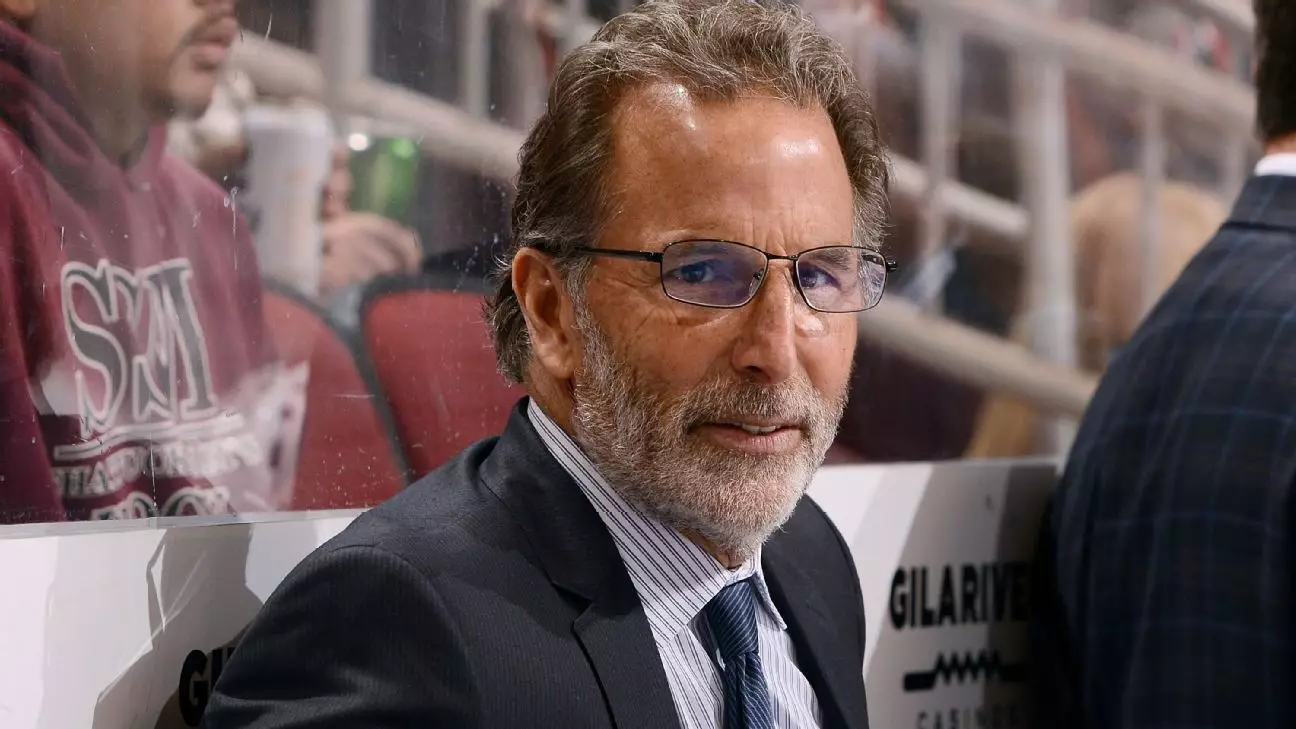The Philadelphia Flyers recently made headlines by parting ways with head coach John Tortorella. This decision, characterized by general manager Daniel Briere as driven by “differences of opinion,” reveals a deeper conflict that had evidently been brewing within the ranks of the organization. Briere recognized Tortorella’s complexity as both a coach and individual, praising his challenging nature and candid input. However, navigating this relationship appears to have become more arduous than beneficial, leading to what Briere deemed a necessary pivot towards new coaching leadership.
Tortorella’s six-year NHL experience with the Flyers turned out to be tumultuous. His record, specifically a disappointing 97-107-33, underscored a narrative of unmet expectations. The conversation about change emerged only recently, igniting following a series of poor performances, including a staggering 7-2 loss to the Toronto Maple Leafs. Tortorella’s own admission of disinterest in evolving as a coach during a challenging season suggests not just frustration but a lack of belief in the existing framework. Briere’s remarks reflect the implications of this acknowledgement: a series of events, culminating in Tortorella’s firing, drove the organization to reevaluate its immediate future.
A Tough Transition: Rebuilding Amidst Discontent
It is no secret that the Flyers are in the midst of a significant rebuilding effort, which undoubtedly impacted both players and staff alike. The trading of pivotal players like Joel Farabee and Morgan Frost has destabilized the current team structure, leaving Tortorella scrambling to mold his strategy in a continuously shifting landscape. Briere’s acknowledgment that the Flyers had to sacrifice pieces for future gains while grappling with current limitations amplifies the challenges at play. The disarray apparent in the dressing room and on the ice is a testament to the difficulties of such a transition.
Perhaps the most profound aspect of this coaching change is the impact on younger players—the very individuals who constitute the Flyers’ hope for the future. While Tortorella’s methodology of “tough love” proved effective for some, it left others, including the developing superstar Matvei Michkov, to navigate a bewildering environment. His approach, although well-intentioned, often left young players feeling the weight of unrealistic expectations, suggesting that an alternative coaching philosophy might better serve their growth.
Briere noted that Tortorella’s efforts with Michkov suggested a commendable attempt to cultivate talent, yet these efforts were clouded by broader issues within the team. For a franchise emphasizing youth development, the hiring of a coach who can foster a constructive, positive atmosphere is essential for long-term success.
Looking Ahead: The Path to Recovery
With Brad Shaw stepping in as the interim head coach, the Flyers are at a crucial junction in their journey. Shaw’s tenure will be critical, not just during this season, but in the foundation-laying phase of the impending rebuild. Briere has not yet outlined a clear succession plan for a permanent head coach, which raises questions about the direction the franchise aims to take. The urgency for rejuvenation looms large, especially given Briere’s admission that they might be at “rock bottom” in terms of organizational performance.
There is an inherent risk in making such a significant coaching change when the team is on a downward trajectory. However, if managed appropriately, this shift presents an opportunity for rejuvenation and revitalization. It will allow players to embrace a new vision and foster a renewed sense of identity as they strive for improvement. The Flyers’ front office must meticulously vet their next coaching candidate, ensuring that this person embodies a philosophy that aligns with the franchise’s long-term aspirations—one that prizes skill development, accountability, and a balanced mix of challenge and support for its younger athletes.
In this moment of upheaval, the Flyers find themselves at a crossroads. The decisions made in the coming weeks will dictate not just their immediate trajectory but also how well they can return to contention in the NHL landscape. It is critical that the new leadership crafts a positive, collaborative environment, not only to escape the depths of despair but to foster a competitive spirit and a promising future.


Leave a Reply